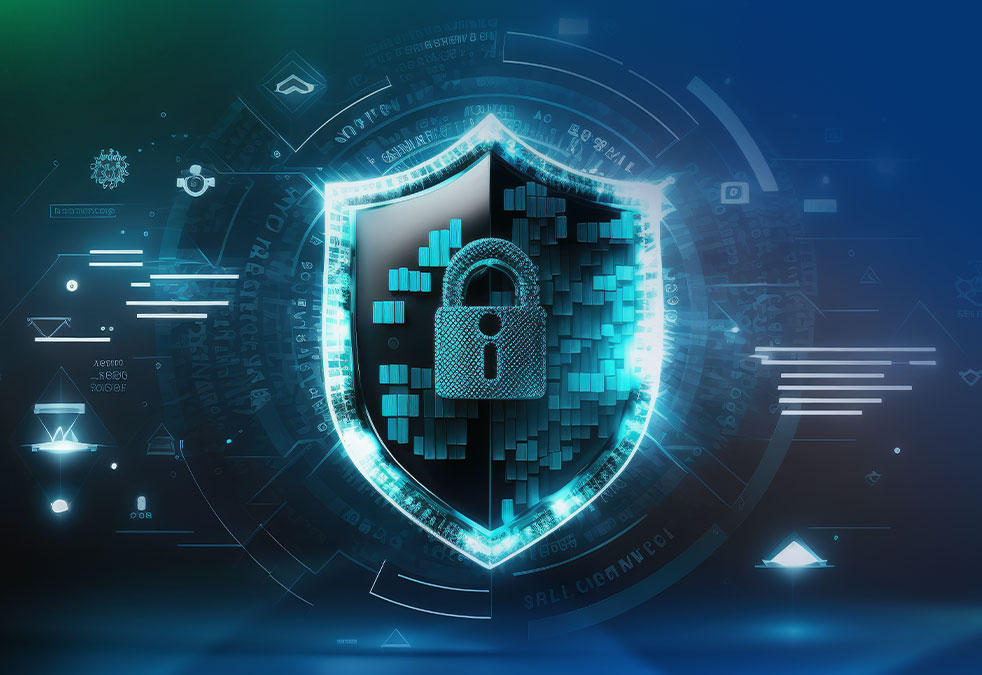With the advent of the digital age and continuous technological advancement, cities are becoming increasingly smarter. The implementation of innovative technologies, such as sensors, connected devices, and integrated management systems, provides cities with the opportunity to improve the efficiency of public services, optimize urban planning, and deliver a better quality of life to citizens. However, this digital transformation brings with it significant cybersecurity challenges that need to be addressed to ensure the protection of data and the entire urban infrastructure.
Smart cities are growing globally. According to the UN, the world’s population is expected to reach 8.5 billion in 2030 and 9.7 billion in 2050, especially in extremely populous countries such as India, China and Nigeria. Even countries with greater population control, modernization challenges will be just as important. This rapid urbanization creates a demand for smart solutions to address urban challenges such as transportation, infrastructure, energy, and utilities. Given this, the average annual growth of the global smart city market is estimated to be around 19% through 2025. It is possible that the sector will reach a value close to US$ 152 billion in the coming years.
These metropolises rely on a secure network infrastructure to function properly with a wide range of devices and systems, from surveillance cameras, automated traffic lights to traffic management systems. The controls also include services such as energy and supply. Therefore, any protection failures in these systems can lead to devastating consequences, since cyberattacks targeting public services can disrupt the functioning of cities by attacking strategic fronts that can compromise the security of all citizens.
In addition to the immediate risks, the lack of secure infrastructure in smart cities also threatens people’s privacy. With the increasing amount of personal data collected by urban systems, such as location information and consumption habits, there is significant potential for unauthorized access to this data. This can result in privacy breaches and even cybercrimes, such as identity theft, digital hijacking of information, and financial fraud in the names of third parties.
Therefore, cybersecurity challenges in smart cities are diverse and wide-ranging, requiring special attention from authorities and close monitoring by companies and the population as a whole, which can be severely affected. The manipulation of monitoring systems, for example, can compromise the effectiveness of public safety efforts. Hackers can alter video feeds from surveillance cameras, mask suspicious activity, or disable alarms, making it harder to detect and prevent crime. Critical infrastructure, such as water and power supply systems, transportation systems, and emergency services, may also be at risk, being susceptible to targeted attacks and significant disruptions, which can generate social impacts and economic losses.
Another front that requires protection is cyberespionage and sabotage for the misuse of information. This raises serious concerns, starting at the level of the individual and reaching national security, and can undermine a country’s sovereignty. In the face of these challenges, it is crucial that public authorities and governments adopt effective measures to ensure data protection and, consequently, the urban infrastructure of cities that will be increasingly connected. Among the issues to be considered, the following stand out:
– Secure network infrastructure: It is critical to implement a robust and secure network infrastructure to protect communication between urban devices and systems. This includes the use of proper security, encryption, and authentication protocols with the use of digital security solutions;
– Awareness and education: It is essential to alert citizens, businesses, and governments about the cybersecurity risks that connected cities can have. Literacy involves specialized training in good practices and the use of protection systems. This helps create a culture of safety to mitigate any issues;
Security testing and regular assessments: Cities’ infrastructures should be subjected to rigorous security testing to identify vulnerabilities and security flaws, as companies are beginning to do on a routine basis. In addition, regular evaluations should be carried out to verify security measures that need to be improved to increase the protection of the systems.
I believe that smart cities can also offer numerous opportunities to improve the quality of life of citizens and boost urban development. However, to make the most of these benefits, it is crucial to address cyber challenges and have society as a whole come together to ensure greater digital security. With the adoption of modern protection systems and with everyone informed about the conducts to be followed, we will be able to have a digital, safe and sustainable environment for everyone.
With more than 5,000 clients, Blockbit is one of the leading manufacturers of cybersecurity solutions, empowering businesses to protect themselves against a wide range of threats, vulnerabilities, and cyberattacks, whether internal or external, generic or specific.

